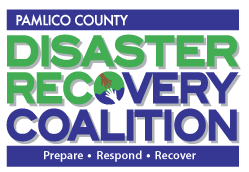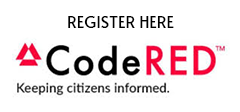MAKE A PLAN
Register your email and phone numbers to receive alerts by text, voice or email at CodeRed. These alerts will update you regarding evacuation, shelter, help, boil water/low pressure advisories, debris pickup during and after natural disasters.
- • Visit https://www.readync.org/ for further advice on emergency planning and the READYNC app.
• Safe Shelter – Have a plan in place for you!
- If possible, try to stay with family, friends or at a hotel. For health reasons, a hurricane shelter should be a family’s last resort.
- Typically, Pamlico County’s hurricane shelter is at Pamlico Community College.
- Listen to CodeRED alerts and check www.pamlicocounty.org regarding the location of the public hurricane shelter. Follow shelter and staff guidelines.
- Plan how and where to evacuate and care for pets. A hurricane shelter may be available for household pets. A rabies certificate is required for each pet. Have leashes, collars, pet food, medications and water available.
- Plan for removal of large animals from flood zones. For assistance contact 252-745-3203 animalcontrol@pamlicocounty.org.
- Plan where to park vehicles out of the flood zone.
• Medical
- Make a plan with a friend, relative or neighbor to check on each other.
- Make a list of medications and emergency contacts and have medical records with you.
- Make sure to have prescriptions and medical supplies to last 3 weeks or more (example-oxygen).
- Wear medical alert bracelet.
- Check your First Aid kit. In case you must evacuate, keep it within easy reach.
• Household Preparations - Be Ready to Go!
- Keep some cash on hand, including small bills and change. ATMs and debit cards may not work.
- Increase Trac phone minutes during the peak hurricane months of August- October.
- Collect important documents and photos in one place for easy access: family records, insurance, medication and medical information, written list of phone numbers, pet records, financial and business records… Store in easy to carry, waterproof containers.
- Gas up your vehicle, generator, chainsaw, lawnmower…
- Water: You need at least 3-4 gallons of drinking water for each person (1 gallon per day per person). Fill bathtubs with water to flush toilets, but do not use for drinking.
- Food kit: Electricity may be out. Have canned/dry non-perishable for people and pets.
- Pack bedding, clothing and personal hygiene items in easy to carry waterproof containers.
- Necessities: Cell phone with charger, can opener, flashlights, radio, batteries, toolbox, rope, fire extinguisher, whistle, books, latex gloves, toys and games for the kids, personal hygiene items, medications, insect repellent, cleaning supplies, bleach…
- Minimize wind and flood borne debris damage by securing outside items including propane tanks.
-In a flood zone, raise all chemicals and valuables in garages, workshops, and homes.

